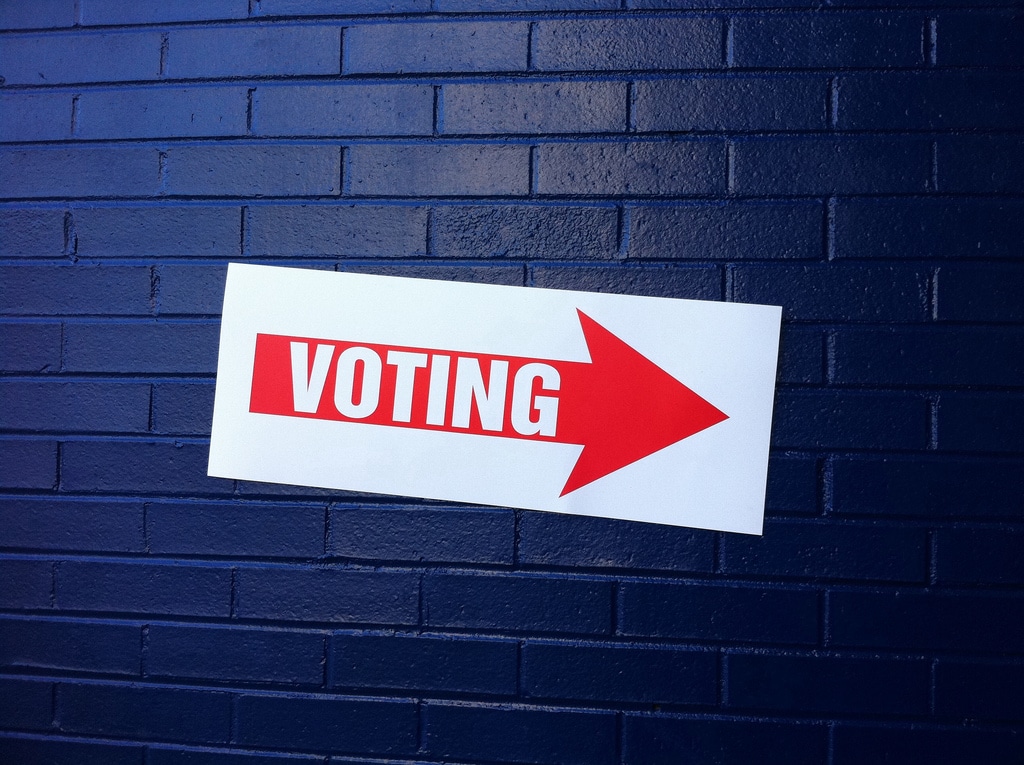
There are 16 candidates in the race for the 2016 Republican presidential nomination. These candidates are in a fight for the lion’s share of Republican voters, like a cluster of businesses looking to establish their foothold in a new market. Rand Paul, Jeb Bush, and Donald Trump have each adopted differentiation strategies to separate themselves from the group in voters’ minds. On a very basic, instinctual level, our brains are wired to pay attention to change in our environment. In terms of evolutionary survival, change may indicate danger—or it may indicate something else. In any case, change—anything that breaks from the norm we are used to—makes people pay attention, and as the DELTA portion of the YESCALATE© system teaches, getting them to pay attention is the first step in getting them to say “yes” to your product or brand. In this case, the brands at stake are the candidates themselves. No matter what your politics are, the election nomination game can be a great learning example for anyone in business. If you change the currency from votes to sales, a case study of candidates can spark some ideas on practices to consider incorporating into your business strategy.
Rand Paul’s Marijuana Money
Back in June, Rand Paul held a fundraising event in Denver, which was put together by the National Cannabis Industry Association.[1. http://www.denverpost.com/election/ci_28410370/rand-paul-visits-denver-raises-weed-money-quest] Some political analysts were surprised by the move, since Republicans aren’t typically supporters of pro-cannabis initiatives. Paul saw this as an opportunity to differentiate himself from the idea of the “conventional” Republican.
Paul analyzed his competition and crafted his unique value proposition based on what he could offer that his competition couldn’t. He is one of the only candidates in the field who embodies Libertarian values like smaller government and freedom of personal choice. The convention in Denver wasn’t as much about supporting cannabis legalization as it was supporting personal liberties and the right of a state and its people to make its own laws.
Rand Paul came away from this event with a $5,000 donation from the National Cannabis Industry Association, as well as $2,700 each from the pro-cannabis business owners who paid the fee to attend the summit. The total dollar amount is irrelevant. What’s important is he has zero competition for this revenue source among his own party.
You can take the theory behind Paul’s marijuana money strategy to craft a unique value proposition for your business.
Study your competition. What are they doing right? Once you know what’s already being done well, focus on what’s not being done well. This is the fertile ground which you can use to grow your influence in the market. Netflix is a perfect example. At first, its main selling point was no late fees. If they had opened as a brick-and-mortar rental store, even with this UVP, they probably would’ve failed when another company became a pioneer in online streaming. Instead, Netflix chose to focus on a part of the market that no one else was dominating and became the first online streaming and rental service. They put companies like Blockbuster out of business with a UVP so unique it couldn’t be copied.
Jeb Bush’s Jimmy Fallon Appearance
Jeb Bush employed a similar strategy to Paul’s when he appeared on the Tonight Show with Jimmy Fallon for a segment called “Slow-Jam the News.” Bush knows the Republican party needs a face-lift in order to draw in the millennial vote. One of the issues many young voters have with Republicans is they feel the candidates suffer from a lack of personality.
Bush could have done a typical interview with Fallon, but that wouldn’t have done much to differentiate himself from other candidates in the field. Instead, he touched on contemporary issues in a cleverly written “rap” over a beat provided by the Roots. Who would ever have expected a Republican candidate to do this?
This segment has spread like wildfire through social media. It has generated a buzz that has put Bush steadily atop the polls as the country inches closer to the primary debates.
Take a note from Bush’s strategy and look for ways you can appeal to the millennial demographic. A recent White House Report[2. https://www.whitehouse.gov/sites/default/files/docs/millennials_report.pdf] on Millennials marks the 18 to 35 year old demographic as the wealthiest and largest. In other words, one of the most profitable differentiation strategies is to appeal to Millennials.
You have to show Millennials there is a person behind your business. The best way to let your business’s personality shine is through your sales staff. Investing in a proven sales team training system is a great way to implement a uniform sales strategy in your business. A service like Yescalate gives your team the tools they need to make your business sparkle at the point of sale.
How Donald Trump is Making Himself Relevant
According to Huffington Post’s accumulation of the 20 post relevant political opinion polls, Donald Trump has 21.4 percent of voters on his side. Bush is his closest competition at 14.2 percent.[3. http://elections.huffingtonpost.com/pollster/2016-national-gop-primary] This is in spite of Trump’s tirade against illegal immigrants, as well as his outspoken criticism against fellow Republicans.[4. http://www.washingtonpost.com/politics/the-mainstream-response-to-donald-trump-affirms-latino-political-power/2015/07/12/678e4405-676a-4440-b23d-2cc18fa29485_story.html]
While political analysts are still hesitant to take Trump seriously, the polls speak otherwise. Trump may not be an experienced politician, but the man knows business. The polls show shock value is a differentiation strategy that can work in politics.
Like Bush’s Fallon appearance, Trump’s controversial comments show a differentiation strategy revolving around personality. The difference is that Trump is taking a more combative approach by harping on the pain points of voters. He knows there is a segment of voters who have a strong opinion against illegal immigrants, and that those who take offense to his comments are likely to vote Democrat regardless.
To rely on shock value is a risk for your business, but it can have a high reward when done right. French Connection United Kingdom, or FCUK as it’s more commonly known, is a high-end fashion company who is a good example of shock value done right.[5. http://www.business2community.com/brandviews/newscred/shock-value-marketing-gives-fcuk-01043385] Clever slogans like “Who gives a FCUK” and risqué plays on nudity in their magazine advertisements convey feelings of edginess and as a result they have established themselves as a company who pushes boundaries.
Have a brainstorm session focused on ways you can add edge to your differentiation strategy without going overboard.
As the campaign continues, you can monitor the successes and failures of the Republican primary candidates and apply them to your business. After all, a political campaign is just a sales campaign whose successes mean votes instead of commissions.
At Yescalate our program focuses on helping you set your business up for success through unique training tools that teach you proven strategies. To learn more about strategies like differentiation and how they can help your business thrive, contact us and ask about our system or set up an appointment to help you GET TO YES FASTER©.



